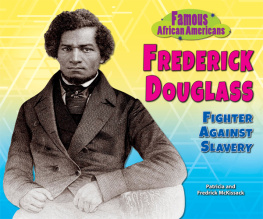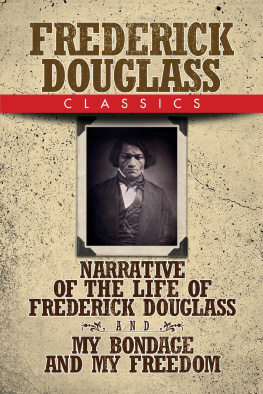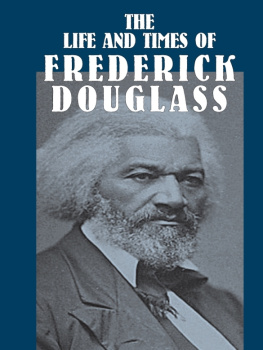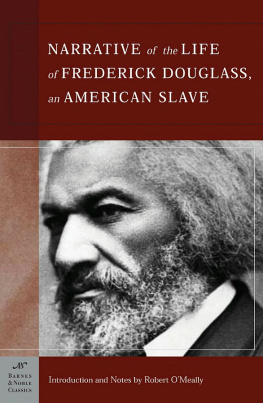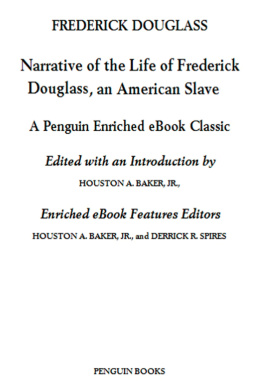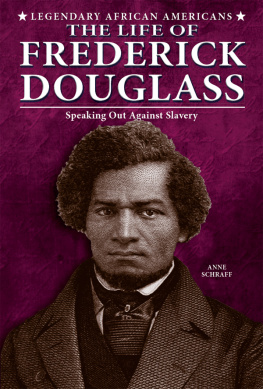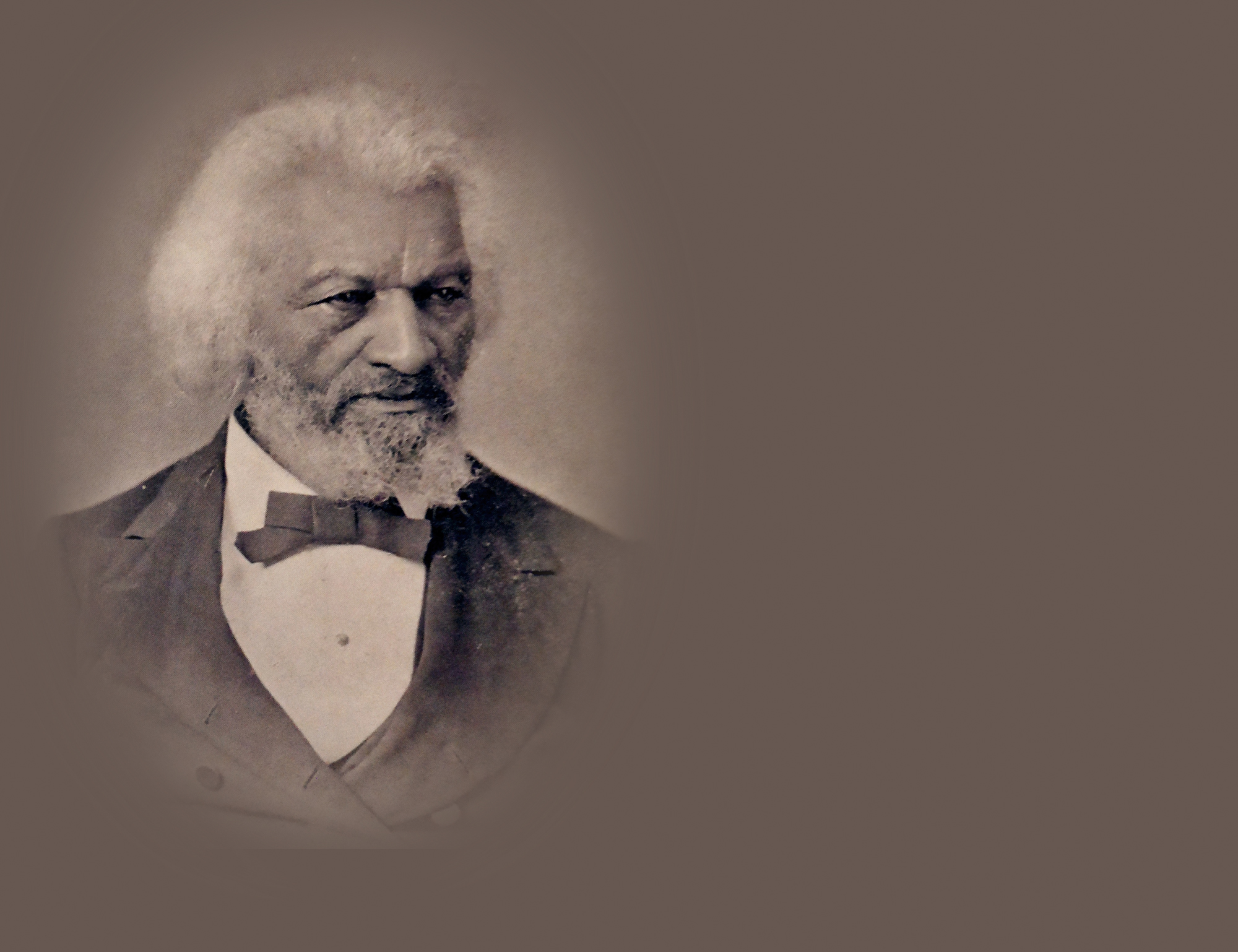Thank you for downloading this Simon & Schuster ebook.
Get a FREE ebook when you join our mailing list. Plus, get updates on new releases, deals, recommended reads, and more from Simon & Schuster. Click below to sign up and see terms and conditions.
CLICK HERE TO SIGN UP
Already a subscriber? Provide your email again so we can register this ebook and send you more of what you like to read. You will continue to receive exclusive offers in your inbox.
We hope you enjoyed reading this Simon & Schuster ebook.
Get a FREE ebook when you join our mailing list. Plus, get updates on new releases, deals, recommended reads, and more from Simon & Schuster. Click below to sign up and see terms and conditions.
CLICK HERE TO SIGN UP
Already a subscriber? Provide your email again so we can register this ebook and send you more of what you like to read. You will continue to receive exclusive offers in your inbox.
Additional Praise for Frederick Douglass
In this stunning biography, David Blight takes on the question that Frederick Douglass sought to answer all his life: How did a runaway slave transform himself into an internationally famous abolitionist, orator, journalist, and diplomat? Astonishing in its breadth and depth, and told with exceptional sensitivity, this account of an epic life that intersected with black freedom and violent white backlash is also a story of rage and forgiveness, loneliness and charisma, bitter discouragement and fervent faith. All the way through this soaring, page-turning book, the piercing wisdom of the extraordinary Douglass echoes and endures into our own troubled century.
Martha Hodes, author of Mourning Lincoln
David Blights magnificent book bares the radical fury and inner dilemmas that drove one of the greatest American lives. No scholar has known Frederick Douglass better, or written about him with such emotional as well as historical acuity. It is a biography truly worthy of its eloquent, conflicted, elusive, and heroic subject.
Sean Wilentz, George Henry Davis 1886 Professor of American History, Princeton University, and author of The Rise of American Democracy: Jefferson to Lincoln
David Blights career-long fascination with Frederick Douglass has finally given historians the definitive biography of one of Americas leading prophets of freedom. Blights work not only humanizes Douglass, it also reframes our understanding of the nineteenth century through the lens of the life of Frederick Douglass.
Lonnie G. Bunch III, Director, National Museum of African American History and Culture
David Blights beautifully written Frederick Douglass uses previously unplumbed archives to give us the deepest portrait yet of one of Americas greatest intellectuals. The radical thinker and revolutionary is revealed here in all his complexity by a gifted and learned historian with an ear for Douglasss oracular voice and an eye for the tragedies of nineteenth-century America. This is a biography worthy of the man.
Wendy Warren, author of New England Bound: Slavery and Colonization in Early America
Good historians make the best biographers. David Blight, one of our finest historians, has skillfully placed Frederick Douglass into his time and place and given us a psychologically penetrating portrait enriched by new details grounded in thorough research. This is the best biography of Douglass ever written, the one Douglass has long deserved.
James Oakes, author of The Radical and the Republican: Frederick Douglass, Abraham Lincoln, and the Triumph of Antislavery Politics
Never before has Frederick Douglasss life been portrayed with such scope and authority. The whole arc is herehis endurance of and escape from slavery, his experience of quasi-freedom in the North, his shifting views of how abolition might be achieved, and, after the war was won, his keen awareness that the struggle for full freedom was far from over. David Blights probing biography will be indispensable for anyone hoping to understand this towering figure in the central drama of American history.
Andrew Delbanco, Alexander Hamilton Professor of American Studies, Columbia University, and author of The War Before the War: Fugitive Slaves and the Struggle for Americas Soul from the Revolution to the Civil War
There is hardly a more important and symbolic figure in Americas never -ending struggle to get the universal rights we proclaimed at our founding. With his characteristic brilliance, David Blight brings Frederick Douglass to life; no longer is he merely a player in the drama of Afro-American liberation, but the avatar of all of our aspirations and dreams for a truly equal society.
Ken Burns
ALSO BY DAVID W. BLIGHT
American Oracle: The Civil War in the Civil Rights Era
A Slave No More: Two Men Who Escaped to Freedom: Including Their Own Narratives of Emancipation
Passages to Freedom: The Underground Railroad in History and Memory (editor)
Race and Reunion: The Civil War in American Memory
Frederick Douglass Civil War: Keeping Faith in Jubilee
Beyond the Battlefield: Race, Memory, and the American Civil War
There is a prophet within us, forever whispering that behind the seen lies the immeasurable unseen.
FREDERICK DOUGLASS, 1862
To Walter O. Evans and Linda J. Evans and to Jeffrey Brown Ferguson, 19642018
INTRODUCTION
Behold, I have put my words in your mouth ...
to pluck up and to break down,
to destroy and to overthrow,
to build and to plant.
JEREMIAH 1:910
I n his speech at the dedication of the National Museum of African American History and Culture in Washington, DC, September 24, 2016, President Barack Obama delivered what he termed a clear-eyed view of a tragic and triumphant history of black Americans in the United States. He spoke of a history that is central to the larger American story, one that is both contradictory and extraordinary. He likened the African American experience to the infinite depths of Shakespeare and Scripture. The embrace of truth as best we can know it, said the president, is where real patriotism lies. Naming some of the major pivots of the countrys past, Obama wrapped his central theme in a remarkable sentence about the Civil War era: Weve buttoned up our Union blues to join the fight for our freedom, weve railed against injustice for decade upon decade, a lifetime of struggle and progress and enlightenment that we see etched in Frederick Douglasss mighty leonine gaze.
How Americans react to Douglasss gaze, indeed how we gaze back at his visage, and more important, how we read him, appropriate him, or engage his legacies, informs how we use our past to determine who we are. Douglasss life and writing emerge from nearly the full scope of the nineteenth century, representative of the best and the worst in the American spirit. Douglass constantly probed the ironies of Americas contradictions over slavery and race; few Americans used Shakespeare and the Bible to comprehend his story and that of his people as much as Douglass; and there may be no better example of an American radical patriot than the slave who became a lyrical prophet of freedom, natural rights, and human equality. Obama channeled Douglass in his dedication speech; knowingly or not, so do many people today.
Born Frederick Augustus Washington Bailey, a slave, in Talbot County, Maryland, in February 1818, the future Frederick Douglass was the son of Harriet Bailey, one of five daughters of Betsy Bailey, and with some likelihood his mothers white owner. He saw his mother for the last time in 1825, though he hardly knew her. She died the following year. Douglass lived twenty years as a slave and nearly nine years as a fugitive slave subject to recapture. From the 1840s to his death in 1895 he attained international fame as an abolitionist, editor, orator of almost unparalleled stature, and the author of three autobiographies that are classics of the genre. As a public man he began his abolitionist career two decades before America would divide and fight a civil war over slavery that he openly welcomed. Douglass was born in a backwater of the slave society of the South just as steamboats appeared in bays and on American rivers, and before the telegraph, the railroad, and the rotary press changed human mobility and consciousness. He died after the emergence of electric lights, the telephone, and the invention of the phonograph. The renowned orator and traveler loved and used most of these elements of modernity and technology.
Next page


